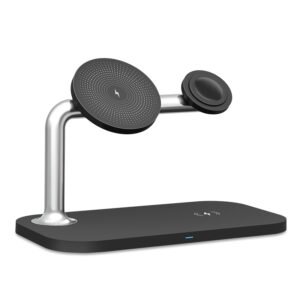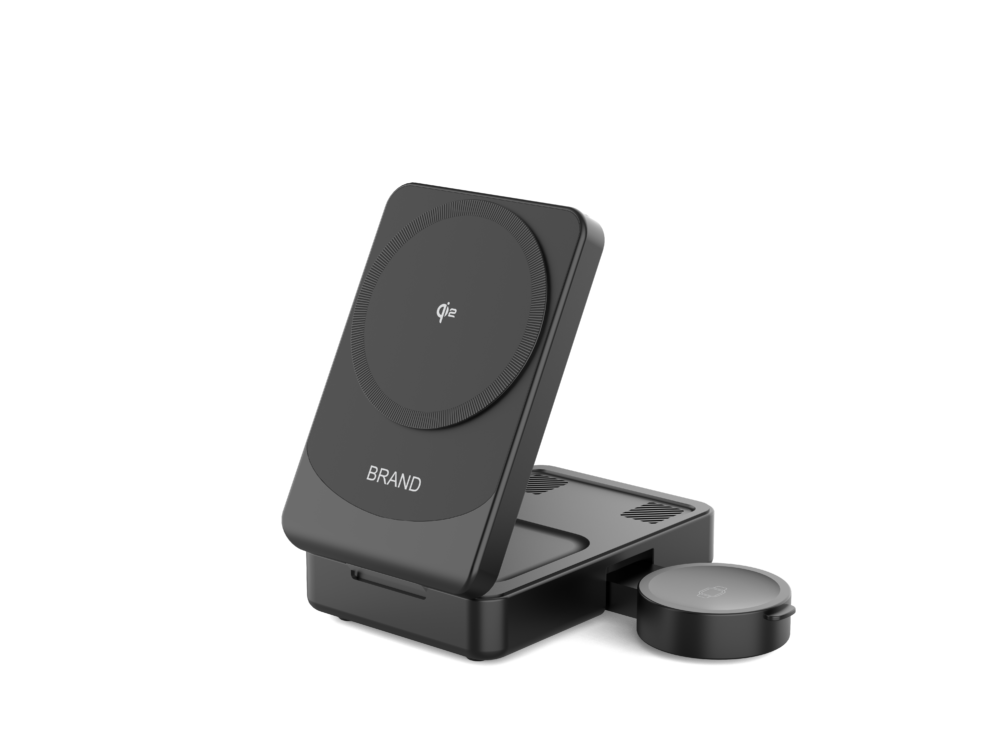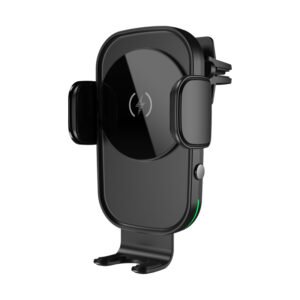Introduction: The Business Imperative of Quality Control for Wireless Chargers
In the B2B market, where businesses rely heavily on reliable, efficient products, the quality control of wireless chargers becomes a critical factor. For manufacturers, distributors, and corporate buyers, ensuring product safety, performance, and compatibility directly impacts customer satisfaction, brand reputation, and operational efficiency.
Quality control in wireless chargers addresses essential concerns, including electrical safety, stable performance, and seamless integration across various devices. B2B buyers, especially in industries like technology, telecommunications, and retail, must prioritize these standards to avoid costly recalls, customer complaints, and potential safety liabilities. A well-established quality assurance process not only minimizes these risks but also enhances the product’s market competitiveness.
Regulatory Standards and Certifications
- Compliance with National and International Standards For businesses looking to procure wireless chargers in bulk, understanding regulatory compliance is key. Major national standards such as GB4943.1-2011 (which sets out safety requirements for IT equipment) and GB17625.1-2012 (covering electromagnetic compatibility) ensure that products meet both electrical safety and performance requirements.From 2023 onwards, wireless chargers must also meet the requirements of GB4943.1-2022, while additional certifications like CQC or CESI will become mandatory for products sold on platforms like JD.com and Tmall. For B2B buyers, ensuring suppliers comply with these evolving standards reduces the risk of purchasing non-compliant or subpar products, which could negatively affect end-users and damage brand trust.
- Industry-Specific Certifications and Certifications for E-commerce For corporate buyers supplying e-commerce platforms or retail outlets, industry-specific certifications such as CQC or CESI are essential. These certifications help verify the product’s adherence to stringent safety and performance standards, ensuring smooth market entry and reducing the potential for product returns or negative reviews.Additionally, wireless chargers intended for B2B resale must comply with guidelines that enhance their appeal to business users, including fast charging capabilities and broad compatibility with devices used by business clients.
Key Quality Control Processes
- Manufacturing and Assembly Precision In the B2B environment, large-scale procurement relies on a high level of product consistency and durability. During the manufacturing process, every wireless charger must undergo strict inspections to verify both external and internal quality. Factors like material alignment, scratch resistance, and the precision of assembly are critical to ensure that chargers maintain their structural integrity during transportation and handling.Any deviation from these standards could lead to malfunctioning units, increased return rates, or even safety concerns—all of which could significantly affect a business’s operations and customer relationships. As a corporate buyer, requesting detailed documentation on quality control practices and production audits can provide additional assurance.
- Comprehensive Functional Testing Functional testing is another critical component for wireless chargers aimed at B2B clients. These tests typically include:
- Charging Efficiency Testing: Ensuring that wireless chargers operate at an efficiency of around 85% or higher. This reduces energy waste and enhances the charging speed, a key selling point for corporate clients.
- Compatibility Testing: Verifying the product’s compatibility with a broad range of devices such as smartphones, tablets, and wearables, ensuring that businesses can offer products suitable for various end-users.
- Safety Testing: Tests for overcharging, short circuits, and overheating ensure that products meet rigorous safety requirements. B2B buyers, especially those catering to corporate or institutional clients, must prioritize chargers with robust safety features to avoid potential liabilities.
- Innovation in Wireless Charging Technology The B2B market increasingly values wireless chargers that offer more than just basic functionality. Products with advanced technologies, such as magnetic resonance charging, can offer long-distance charging capabilities and enhance safety by reducing energy loss.Furthermore, B2B buyers may prefer multi-device chargers for offices or public spaces, allowing businesses to optimize desk space and improve user experience. Chargers like those from Belkin and Aohi, which support fast charging for multiple devices, offer a tangible value proposition for business buyers looking to enhance workplace productivity.
B2B Procurement and Usage Guidelines
- Key Considerations for B2B Buyers When purchasing wireless chargers in bulk for resale or business use, several critical factors should be considered:
- Power Output: Select chargers with the appropriate power output based on the specific needs of your customer base. For example, fast charging capabilities (up to 15W) are increasingly popular in office environments where efficiency is a top priority.
- Certifications and Compliance: Ensure the products meet all relevant safety and performance standards, such as GB4943.1-2011 and GB17625.1-2012, to avoid regulatory or compliance issues.
- Supplier Reliability: Work with suppliers who provide comprehensive testing reports and detailed information on quality control processes. This will ensure the wireless chargers you procure are consistent and reliable, minimizing the risk of defects.
- Maximizing Longevity and Safety Wireless chargers are often used in business settings where devices are continually in use. To maintain the longevity of the product, it’s crucial to educate end-users on best practices:
- Avoiding Foreign Objects: Placing foreign objects between the charger and device can reduce efficiency and damage both the charger and the device.
- Ensuring Proper Alignment: Misalignment of the charging coils can lead to inefficient charging or failure to charge altogether. This is especially important in environments where devices are frequently moved.
- Heat Management: Wireless chargers should be used in environments where heat is controlled, and they should not be exposed to extreme temperatures.
Conclusion: A Strategic Approach to Wireless Charger Procurement
For B2B buyers, quality control in wireless chargers is more than just a matter of compliance—it’s a strategic advantage. By sourcing products that adhere to strict safety, performance, and compatibility standards, businesses can enhance their product offerings, reduce returns, and build stronger relationships with their clients.
Furthermore, selecting innovative products with cutting-edge technology and multi-device functionality offers additional value for corporate environments, making wireless chargers not just a utility but a strategic tool for improving productivity and convenience in the workplace.














